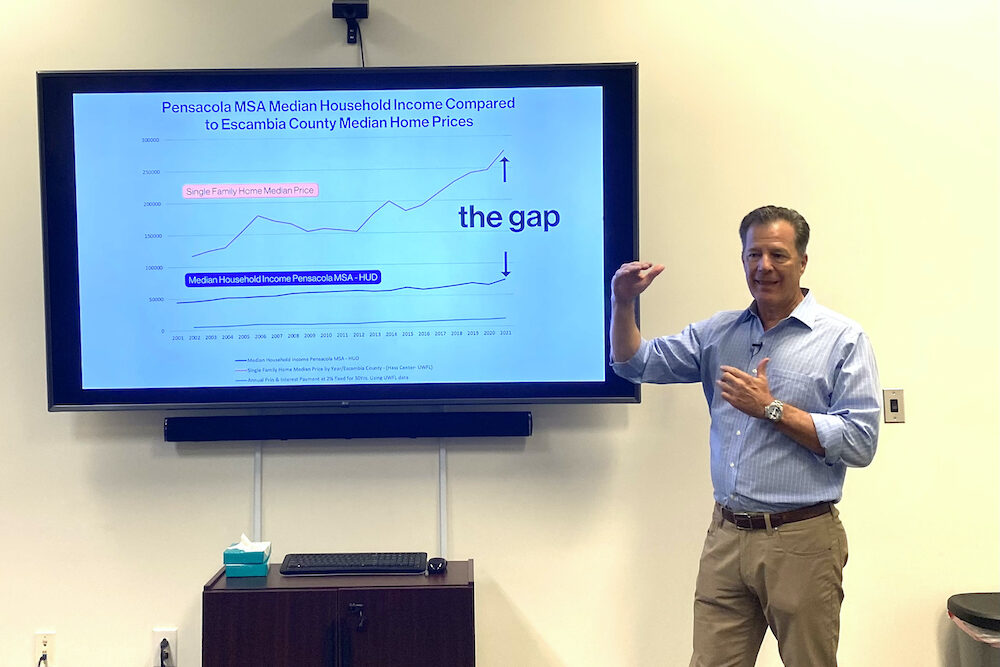Hopes to ‘Go Back to Roots’ of Affordable Housing Mission
By Jeremy Morrison
As the dynamics of the economy evolve — particularly rising housing costs — so do the dynamics of Pensacola Habitat for Humanity’s operations.
“The dream of homeownership became out of reach for so many people,” Sam Young noted recently. “We’re heading back into an environment where people making a median income can never ever afford a median-priced house.”
As president and chief executive officer of Pensacola’s Habitat, Young has seen a change in the population that the organization assists with getting into a starter home. Whereas Habitat previously focused its energies on people earning 30 percent of the median income, the rising cost of property together with comparatively stagnating income levels has led to the organization working with people earning between 60 to 80 percent, or even as much as 120 percent of the median income.
“We have had to leave some of these people behind,” Young said of those at the lower end of the income spectrum.
When Young surveys the group’s clients these days, they tend to fall into the middle-income, backbone-of-community category. Your teachers, your police officers.
“The folks that are critical for us to run our economy, that is whom we are serving,” Young said.
While rising housing costs — not a uniquely Pensacola issue — are beyond Habitat’s control, the organization is trying a new approach to its mission to alleviate some of the burden associated with the increased costs.
“We as an organization cannot change the economics, but we as an organization are committed to helping people make up that gap,” Young said.
Aimed at making up that so-called gap, Habitat is launching a land trust, so that land that is donated or acquired by the organization may be deducted from the total cost of an overall housing project. This approach is expected to reduce the cost of a house by about 30 percent.
The way Habitat’s land trust would operate is that the property would be used for the development of affordable housing, with the eventual owners taking on a deed with a restriction that essentially ensures that the property will remain affordable in perpetuity.
“Once the land is in that land trust,” explained Young, “it will remain there forever.”
Young believes this new approach will allow the organization to get back to assisting people making less income than many of the organization’s current clients.
“The land trust is going to become a very powerful tool for us to go back to our roots, our foundation of what we want to do,” the CEO said.
Habitat built 41 houses in the local area this fiscal year, with another 33 home repair projects. That’s a jump from last year’s COVID-hindered 27 closings but lower than 2023’s expected 60 closings. With this new land trust established, the local Habitat branch hopes to continue to expand and deepen the pool of people it serves, helping them attain, as Young noted, one version of the American dream.
“For so many of us, the core of that American dream revolves around home ownership,” he said.
